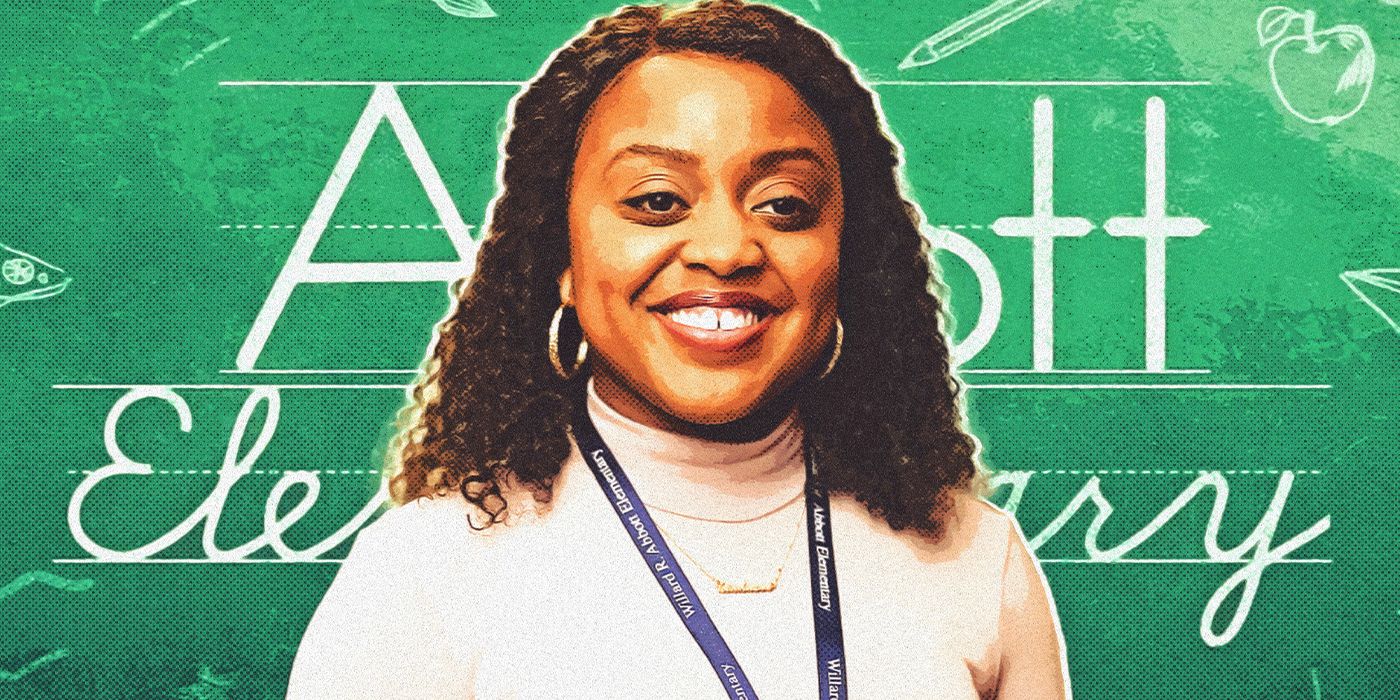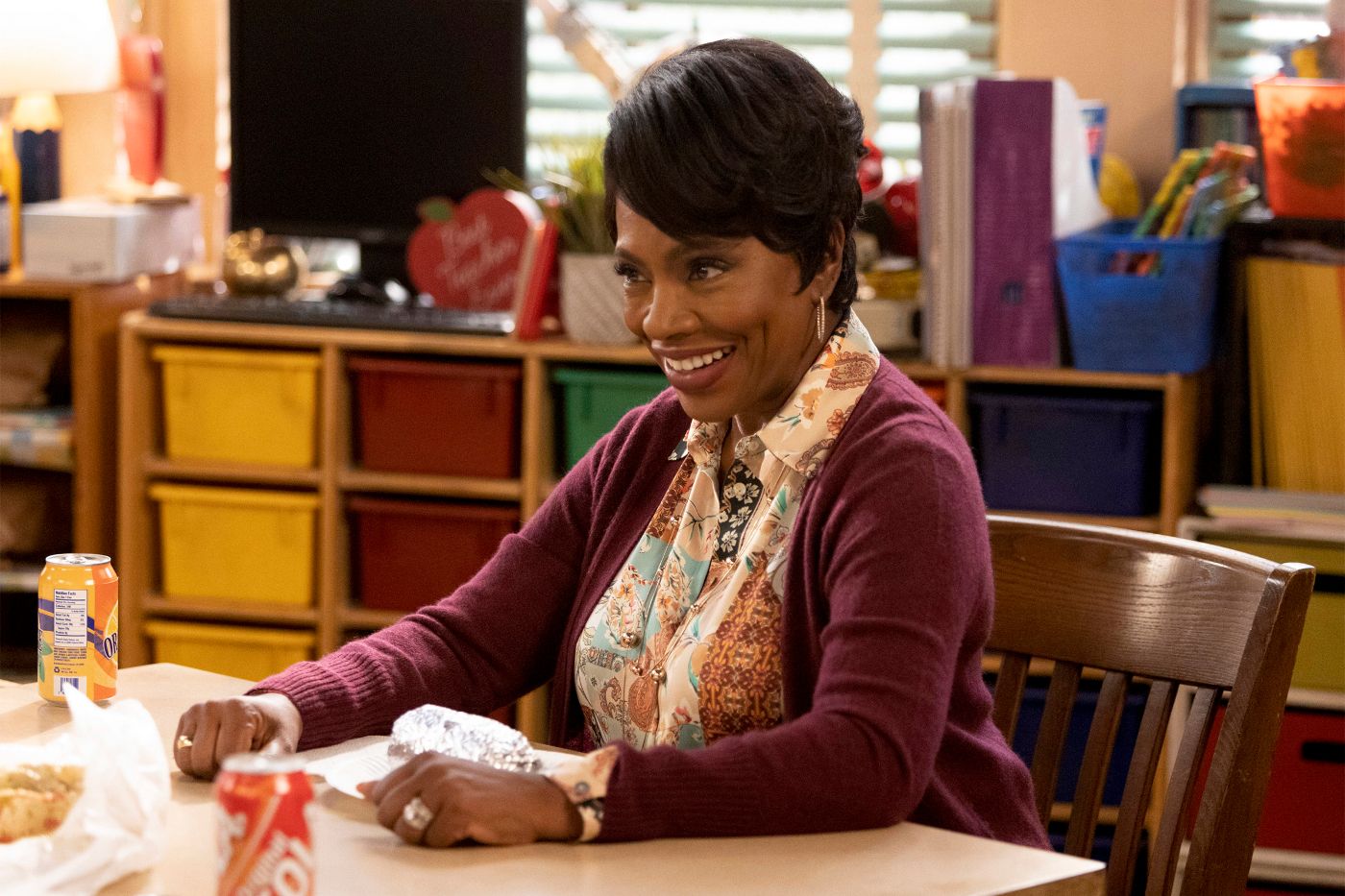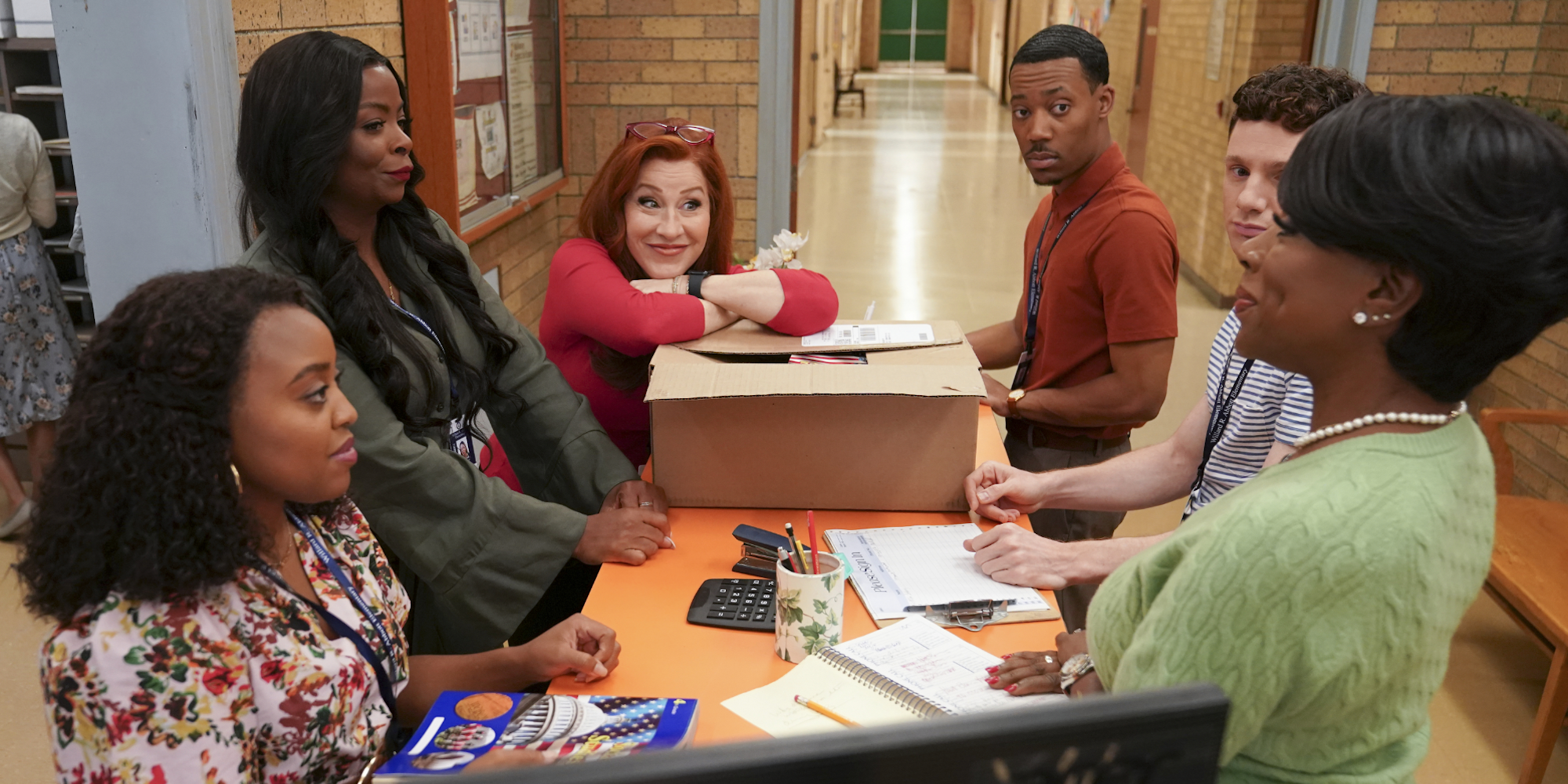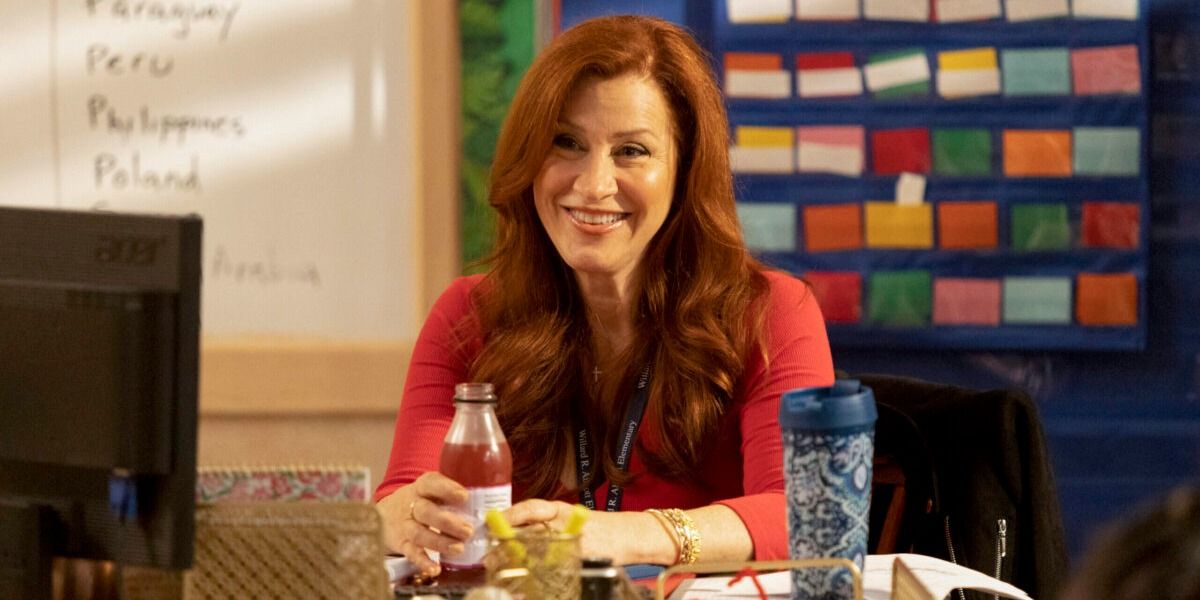The teachers are not okay. Coming out of a pandemic with the one-two punch of lost learning time and students’ increased social and emotional needs, teachers have already been stretched to their limits. Add a never-ending pipeline of governmental mandates, low pay, and a sharp rise in the amount of threats and vitriol rained down on teachers online, in school board meetings, and in their classrooms, teachers are leaving the profession in droves. It is in this landscape that Abbott Elementary has become one of the most popular sitcoms on television, because of a masterful use of the mockumentary format to send subliminal calls to action on behalf of real-life struggling teachers.
Mockumentary as a format for on-screen comedy has been around for as long as moving pictures. Televised mockumentaries about the workplace have carved out their own niche that has a stranglehold on American television screens, as seen in series such as Reno! 911, Parks & Recreation, and, of course, The Office. The popularity of these shows can be understood most simply as catharsis: it feels good to make fun of the absurdism inherent in spending over a third of our time each day working.
The Mockumentary Style Gives 'Abbott Elementary' Options 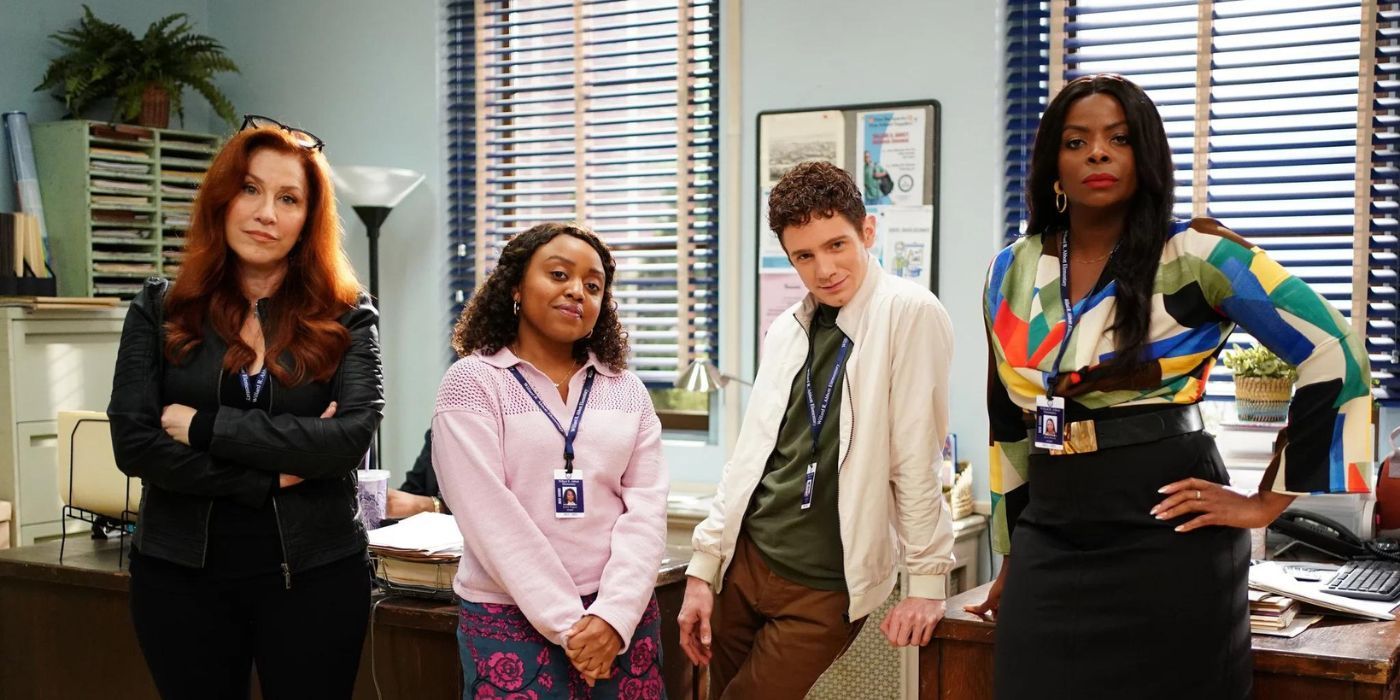
Abbott Elementary does much of the same. It highlights the absurdities in the public education system, plays up the often hilarious dynamics between teachers from different walks of life and the wide variety of ways they react to the circumstances presented to them. Series like The Office take real-life scenarios to their most improbable conclusions and concoct scenarios so egregious they couldn’t possibly be real — starting a fire because coworkers didn’t listen closely enough to a fire safety demonstration, for example — and Abbott engages in this, too. Principal Ava Coleman (Janelle James) is a social media influencer first, principal last, and her antics are always over-the-top. Students at Abbott engage in many ridiculous TikTok-inspired trends like “desking,” jumping from one desk to another in an ultimate game of The Floor is Lava.
What sets Abbott apart from other workplace mockumentaries is the way it weaves in calls to support real-life teachers. Teachers at Abbott deal with many of the same issues that teachers around the country face daily, packaged in a somewhat funnier way, but just as real and painful at the core. It puts human faces to the legion of “teachers” being slandered online and on cable news, proving to what degree they can that teachers are too tired to indoctrinate anyone.
Here are three examples of pressing issues faced by real teachers that Abbott Elementary tackles with grace.
Teachers' Mental Health Is on the Line
References to self-care and teachers creating boundaries with their job show up throughout the series, but never with as loud a megaphone as “Fire” (Season 2, Episode 15). In the episode, a fire breaks out that prompts the evacuation of the school and the summoning of the fire department. The source of the fire was determined to be a shawl that had fallen into the flame of a lit candle. Both shawl and candle turned out to belong to Mrs. Barbara Howard (Sheryl Lee Ralph). The district sent in a grief counselor (Shalita Grant) to meet with students and faculty to discuss the incident.
Mrs. Howard is an old-school teacher if there ever was one. She’s a multi-decade veteran of the school and unfazed by most of the ludicrous things that happen. Instead of handling the fire mishap with her usual aplomb, Mrs. Howard clams up. The more she tries to convince her coworkers that she is fine, the more worried they are about her, especially as she tells the grief counselor multiple times that she is “fine.”
Of course, she is not fine. Viewers learn later that her husband has recently had a severe cancer scare and that her mental health and physical wellbeing have taken damage from the stress. Her desire to maintain consistency for her students and to never show a hint of weakness prevents her from asking Ava for a day off, and the small fire is the severest repercussion of Barbara’s emotional burnout. After this incident, Ava insists Barbara take the following day off to recover. The show’s mockumentary format allows for these small revelations to occur seemingly between the character and the audience without the risk of exposure to the other characters that would be impossible any other way.
No doubt some viewed that exchange with incredulity — why wouldn’t she have just taken time off to manage her mental health? This question was answered a few episodes earlier, in “Sick Day” (Season 2, Episode 9). Janine (Quinta Brunson) called out sick from work, but there are no more substitute teachers available, so Ava herself must step into Janine’s classroom to teach. These two episodes together reiterate a very real struggle in the lives of American teachers, needing time off to care for their physical and mental health while knowing that there may not be a teacher to replace them. Many teachers don’t use the time off that they need for this very reason.
'Abbott Elementary' Addresses the Issue of Accessibility
Schools are rarely as disability-friendly as the Americans with Disabilities Act (ADA) technically requires. An issue that has taken on higher stakes as the push for “school choice” and the funding of charter schools has increased across the country, accessibility for all students is something that Abbott returns to again and again, in ways both heartwarming and devastating.
In “Development Day” (Season 2, Episode 1), Mrs. Howard learns that one of her new students uses a wheelchair. She searches the building for a desk that will accommodate the student’s needs. Frustratingly, nothing suitable exists within the school, so Mrs. Howard is forced to get creative. She arranges and rearranges the desks in her classroom to ensure egress for the child. Here, the accommodations for a disabled student are not present, but every effort is made to make the accommodation in other ways.
By comparison, in “Read-a-Thon” (Season 2, Episode 11), an entirely different structural barrier to serving all students is presented. Ms. Schemmenti (Lisa Ann Walter) and Ms. Teagues set up a read-a-thon, a challenge to read as many books as possible, between their two classes. The winner earns a pizza party. Despite her need to win, Schemmenti notices that at least one of her students seems to be pretending to read instead of actually reading. She calls the child’s parents in for a meeting and attempts to explain the situation, to suggest that the child receive extra literacy services provided by the school to reach her full academic potential, but her parents refuse. We can infer that the available supplementary services provided by Abbott would not be the highest quality services, but even when these supports do exist, gaining access to them comes with more barriers and stigma than non-teachers expect.
This point is especially prescient as students emerge from the pandemic academically worse for wear. Schemmenti’s genuine care for the child comes through only in those moments when she is alone with the students and when she is alone with the camera — and her emotional response is moving.
Classroom Funding Is Another Big Issue for 'Abbott Elementary'
There is an assumption that public school equals are underfunded, and for good reason. Abbott Elementary School is modeled on a Title 1 public school in Philadelphia. Large urban districts are most often cash-strapped because of the sheer size of the districts and the number of students seeking services.
Mrs. Howard’s inability to gain a desk suitable for her student’s needs speaks directly to the funding shortfalls facing schools across the country. In a perfect world, the district would purchase desks and other equipment to make all students’ ability to access the coursework simpler. Instead, schools on shoestring budgets are forced to spend their dollars elsewhere.
That elsewhere may not be clear since seemingly none of it makes it into the classrooms themselves. “Wishlist” (Season 1, Episode 3) illustrates this to great effect. In this episode, all the teachers of Abbott are hard at work creating their classroom wish lists. These lists hold all the materials and supplies they need for the school year: pens, pencils, notebooks, art supplies, books. Abbott’s way includes social media blasts by Principal Coleman, but real life teachers take to sites like Gofundme and DonorsChoose every year to fill the gaps in supplies and materials required to teach.
Abbott Elementary uses its mockumentary format as the ultimate bait and switch. Viewers think they’re getting all light-hearted workplace satire, but they’re instead called to respect teachers and their many struggles. Every school has a Janine, a Barbara, and a Ms. Schemmenti, doing their best to get through the day and provide the best education they can to the children in their care.
To all the teachers out there, we see you!

